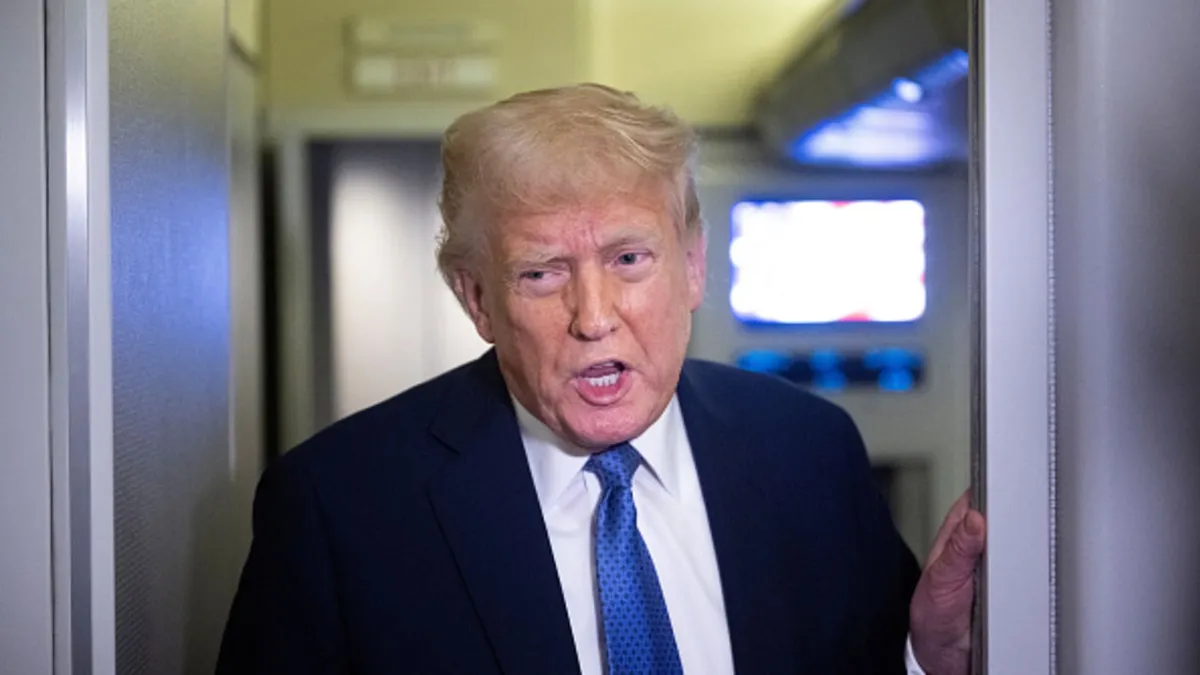
U.S. President Donald Trump has announced plans to engage in a crucial conversation with Russian President Vladimir Putin on Tuesday, aiming to address the ongoing conflict in Ukraine. During a recent interview with reporters on Air Force One, Trump emphasized the importance of this dialogue, stating, "I'll be speaking to President Putin on Tuesday. A lot of work's been done over the weekend."
The primary objective of this discussion is to explore potential avenues for bringing an end to the war in Ukraine. Trump expressed optimism about the outcome, saying, "We want to see if we can bring that war to an end. Maybe we can, maybe we can't, but I think we have a very good chance."
As part of his negotiations, Trump is seeking to gain Putin's support for a proposed 30-day ceasefire that Ukraine accepted last week. Despite the ongoing talks, both sides have continued to engage in heavy aerial strikes throughout the weekend. Meanwhile, Russia appears to be intensifying efforts to displace Ukrainian forces from their established positions in the Kursk region, which has been a focal point of the conflict.
When questioned about possible concessions during the upcoming talks, Trump stated, "We will be talking about land. We will be talking about power plants." He further noted that discussions regarding these topics have already been significantly advanced by both Ukraine and Russia, indicating a willingness to negotiate and explore options for dividing up certain assets.
Trump's upcoming conversation with Putin holds significant implications for the future of U.S.-Russia relations and the ongoing situation in Ukraine. By advocating for a ceasefire and discussing territorial and resource concessions, the former president hopes to pave the way for a peaceful resolution to a conflict that has resulted in substantial loss of life and instability in the region.
As the world watches closely, the outcomes of this discussion may set the tone for future diplomatic efforts and the potential for lasting peace in Ukraine. The stakes are high, and both leaders face pressure from their respective constituencies to achieve a favorable outcome.